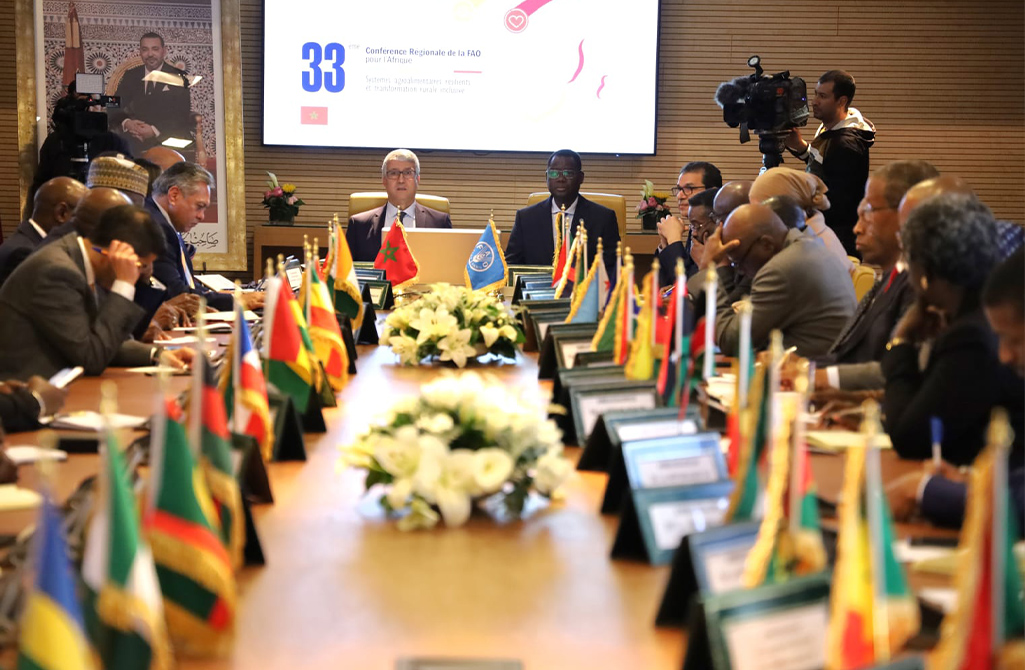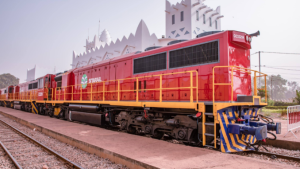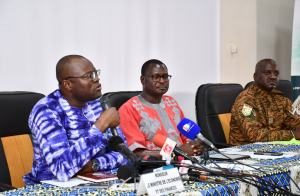African Agricultural Development Summit: Strengthening Food security and rural advancement with FAO

Ministers of Agriculture from across Africa are gearing up for a pivotal gathering set to take place from April 18 to 20, 2024, in Morocco for the 33rd session of the FAO Regional Conference for Africa. These preparatory discussions, which commenced last week, are shaping up the agenda for this significant event.
The FAO Representative in Morocco emphasized the importance of this 33rd regional conference as a platform for African ministers to collectively assess the challenges and opportunities within the agricultural and food sectors on the continent.
He urged participation from all related departments, including water management, forestry, livestock, environmental agencies, logistics, trade entities, and others, highlighting the comprehensive approach needed.
Noteworthy consultations have already occurred with civil society organizations, the private sector, and senior officials on the technical intricacies of food security.
These discussions aim to provide well-informed recommendations for deliberation during ARC33, ensuring a robust exchange of ideas and strategies.
Africa’s potential is vast and promising, evident in its leadership among the world’s fastest-growing economies and the transformative potential of initiatives like the African Continental Free Trade Area (AfCFTA).
With abundant natural resources, extensive arable land, and a youthful demographic primed for innovation, the continent holds immense untapped capacities, particularly in embracing technological advancements.
Yet, the stark reality remains that over a billion people in Africa continue to grapple with inadequate access to nutritious food, a challenge that demands urgent attention and collaborative solutions.
The forthcoming FAO Regional Conference for Africa stands as a vital forum dedicated to addressing these critical issues of food security and rural development.
Hosted under the leadership of Morocco, the conference anticipates the active involvement of over 50 ministers from African member states, alongside representatives from observer nations, the African Union, donor agencies, civil society organizations, and the private sector.
Stan OKAFOR












